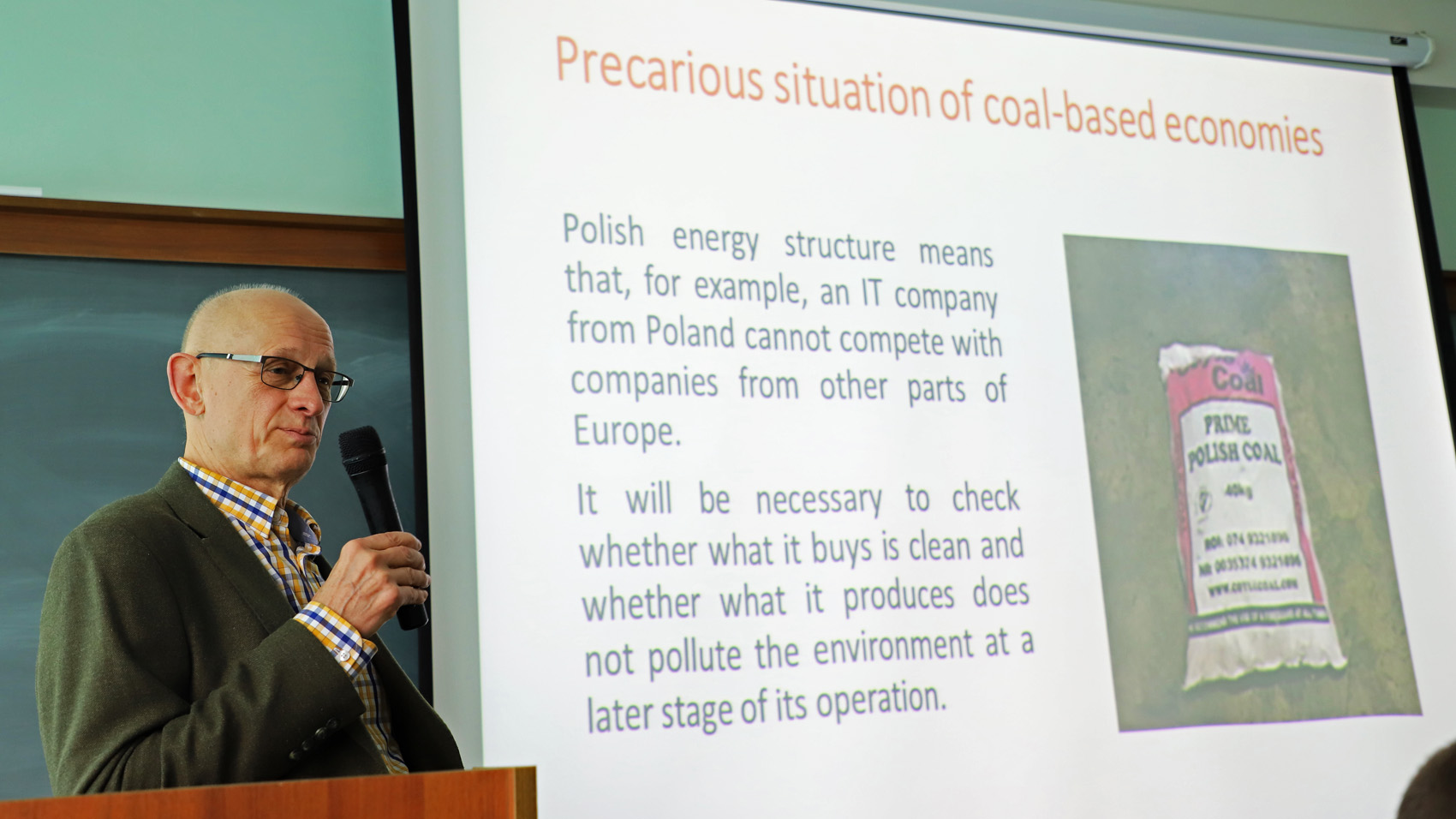The third lecture of the guest lecturer, Polish diplomat Marek Ziółkowski took place on March 4. Students of the Department of Foreign Trade and Customs and others had the opportunity to learn what misinformation is widespread in the field of environmental policy if taking into account corporations and entire countries. The participants also could ask questions, in particular about the protests by Polish farmers.
Disinformation in the field of ecology is spread by companies that risk losing profits due to the green transformation of the economy, as well as by entire countries that exploit this topic in their strategic interests, such as Russia. Among the means of such disinformation there is distortion of reality, dehumanization, labeling, generalized hatred of a part of society, manipulation of various statistics, etc. According to Mr. Ziółkowski, an example of a successful disinformation campaign was the Rwandan genocide against the Tutsi in 1994. Propaganda played a key role in dehumanizing the Tutsi.
Modern countries understand that war today is not only a clash of armies, but also information struggle. Corporations also understand this. A sophisticated disinformation campaign, for example, by one cosmetic brand against another, spreading information about the health risks of a competitor’s products, can seriously damage its reputation. Even in the context of the war in Ukraine, according to Mr. Ziółkowski, we can talk about the struggle between defense companies that are trying to prove that their equipment is more effective on the modern battlefield.
The main issues, that most worried the students and all Ukrainians in general, were the protests of Polish farmers at the border. Mr. Ziółkowski says that there is no shortage of misinformation in this situation. A week ago, after negotiations with farmers, Donald Tusk mentioned that the Polish government would pay attention to the Russian footprint in these events.
– Now there is a lot of divisive rhetoric, and, unfortunately, anti-Ukrainian, as well as the presence of politicians from far-right parties, and revival of xenophobic sentiments among Polish farmers. The presence of these protesters, especially after the prime minister’s latest statements, on the Ukrainian border does not make any sense, said Marek Ziółkowski.
Recently, Polish farmers started to protest against the urban population, although the level of income of urban residents and farmers is the same, which had never took place in Poland before. Perhaps this is due to lower taxes and various subsidies.
Mr. Ziółkowski believes that Ukraine will most likely no longer have such free access to the Polish or even the European market as it has had for the past two years. But it is interesting that our country manages to bypass Poland. Infrastructure projects and agreements with Romania will replace Poland. For the last two years it had to modernize its infrastructure for Ukrainian grain transit, but lost this opportunity. Romania seized the strategic initiative. Poland will lose together with Ukraine because of this blockade. By the way, there are no EU sanctions against Russian and Belarusian grain, and Poland will implement them on its own and will probably encourage the European Union to do the same.
– I am not an optimist. In the coming decades, there is no way to maintain the competitiveness of the Polish agricultural sector without serious transformations, but the attitudes of these farmers are completely different, they say, we should leave the business as it is now, emphasized Mr. Ziółkowski.
The next lecture by Marek Ziółkowski is scheduled for Monday, March 18. It will take place in room 527, the fourth academic building of Lviv Polytechnic.
